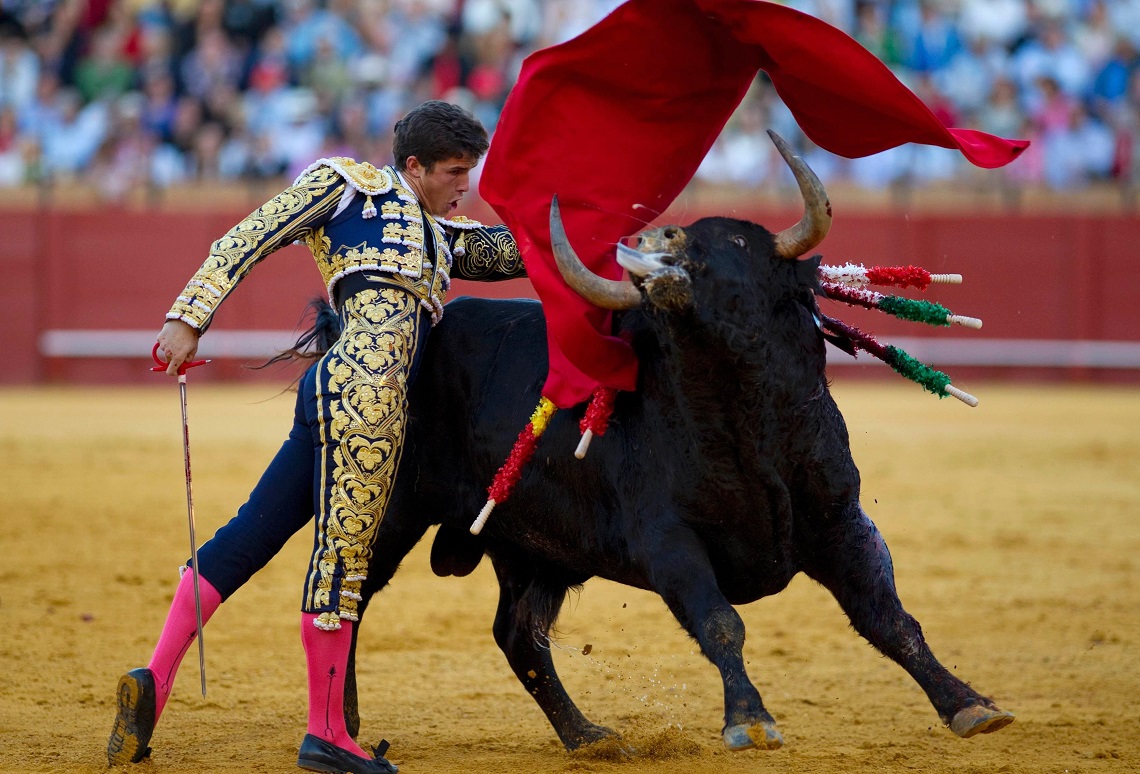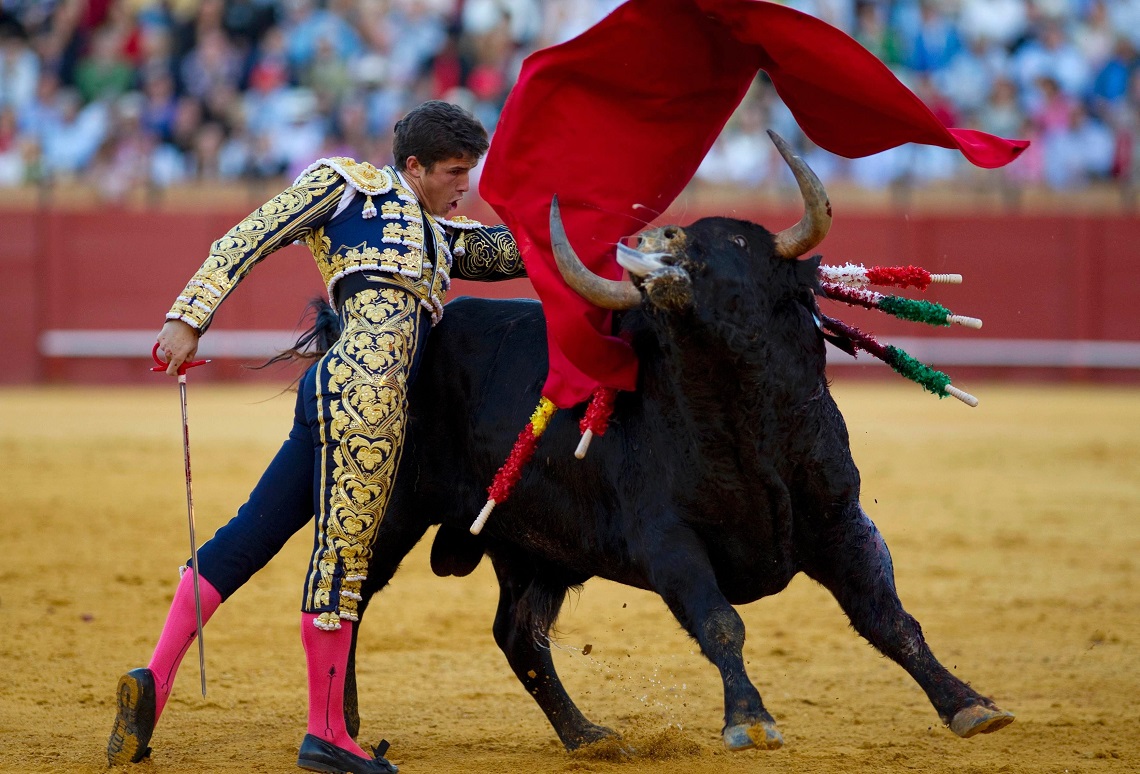European Union's CAP Funds Financing Spanish Bullfighting
The European Union's Common Agricultural Policy (CAP) has come under scrutiny for reportedly channeling approximately €130 million into financing Spanish bullfighting, a controversial tradition that faces opposition from the majority of EU citizens and Members of the European Parliament (MEPs).
Jan 16, 20241801 Shares43917 Views

The European Union's Common Agricultural Policy (CAP) has come under scrutiny for reportedly channeling approximately €130 million into financing Spanish bullfighting, a controversial tradition that faces opposition from the majority of EU citizens and Members of the European Parliament (MEPs).
Hazardous Bullfighting Subsidies
Despite being widely contested and posing serious threats to public health and safety, bullfighting shows continue to receive substantial subsidies from European taxpayers' money. Italian animal rights organization LAV (Lega Anti Vivisezione) is urging the European Commission to cease funding this inherently cruel tradition.
LAV conducted investigations during Corrida shows in Algemesi, Seville, and Madrid between the end of September and the beginning of October 2019. Apart from documented animal welfare violations during and after the shows, witnesses confirmed the reception of subsidies from the EU, coupled with funds from local governments. Bullfighting receives financial support from the national government, regional governments, provincial councils (Diputaciones), and municipalities.
In total, Spanish authorities allocate 571 million euros for bullfighting, with around 130 million euros sourced from EU subsidies, primarily through the CAP. This constitutes a significant portion, making up 31.6% of the income for farms involved in bullfighting, despite the European Parliament's 2016 decision disapproving the use of CAP funds for activities leading to the death of the bull.
Declining Popularity And Health Risks
The public sentiment against bullfighting has grown over the years, with 84% of young Spaniards expressing disapproval in 2015. The trend has steadily increased since 2008, where 67% of respondents showed no interest, reaching 81% in 2020. The decline in the number of shows in 2019 by 63.4% compared to 2007 contrasts with the rise in the number of bull farms and registered professionals in the sector.
This situation highlights the dependence of bullfighting on CAP funds, both nationally and from the EU, for its sustenance. The recent data, coupled with the ongoing Covid-19 emergency, raises concerns about the health risks associated with arenas where animals are slaughtered, emphasizing the need for responsible allocation of public funds.
Urgent Call For Ceasing Subsidies
In light of the evidence presented, LAV, through its CEO Roberto Bennati, calls upon the European Commission and the EU Parliament to immediately halt the subsidization of bullfighting with public funds designated for agriculture. The call emphasizes the irresponsibility of supporting a tradition that not only faces ethical scrutiny but also poses health risks during the current pandemic. It's time for the EU to take a stand against the financing of such practices and redirect public funds towards more ethical and socially responsible causes.
Hazardous Bullfighting Subsidies
Despite being widely contested and posing serious threats to public health and safety, bullfighting shows continue to receive substantial subsidies from European taxpayers' money. Italian animal rights organization LAV (Lega Anti Vivisezione) is urging the European Commission to cease funding this inherently cruel tradition.
LAV conducted investigations during Corrida shows in Algemesi, Seville, and Madrid between the end of September and the beginning of October 2019. Apart from documented animal welfare violations during and after the shows, witnesses confirmed the reception of subsidies from the EU, coupled with funds from local governments. Bullfighting receives financial support from the national government, regional governments, provincial councils (Diputaciones), and municipalities.
In total, Spanish authorities allocate 571 million euros for bullfighting, with around 130 million euros sourced from EU subsidies, primarily through the CAP. This constitutes a significant portion, making up 31.6% of the income for farms involved in bullfighting, despite the European Parliament's 2016 decision disapproving the use of CAP funds for activities leading to the death of the bull.
Declining Popularity And Health Risks
The public sentiment against bullfighting has grown over the years, with 84% of young Spaniards expressing disapproval in 2015. The trend has steadily increased since 2008, where 67% of respondents showed no interest, reaching 81% in 2020. The decline in the number of shows in 2019 by 63.4% compared to 2007 contrasts with the rise in the number of bull farms and registered professionals in the sector.
This situation highlights the dependence of bullfighting on CAP funds, both nationally and from the EU, for its sustenance. The recent data, coupled with the ongoing Covid-19 emergency, raises concerns about the health risks associated with arenas where animals are slaughtered, emphasizing the need for responsible allocation of public funds.
Urgent Call For Ceasing Subsidies
In light of the evidence presented, LAV, through its CEO Roberto Bennati, calls upon the European Commission and the EU Parliament to immediately halt the subsidization of bullfighting with public funds designated for agriculture. The call emphasizes the irresponsibility of supporting a tradition that not only faces ethical scrutiny but also poses health risks during the current pandemic. It's time for the EU to take a stand against the financing of such practices and redirect public funds towards more ethical and socially responsible causes.
Latest Articles
Popular Articles
